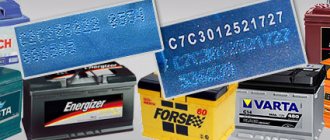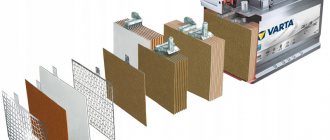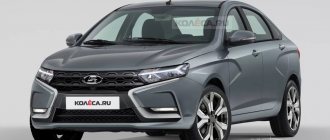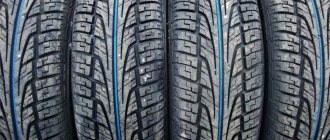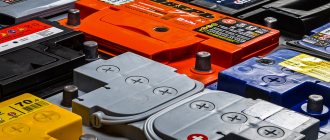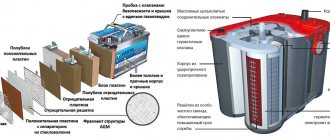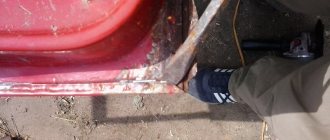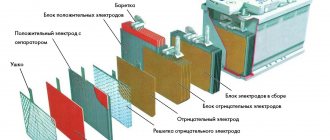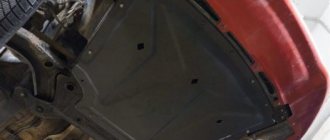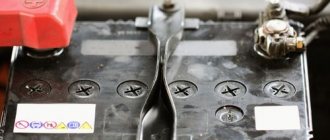The release date for European-made Exside batteries until 2022 was placed in two places:
- On the top cover of the case in the right corner, on the side opposite the terminals (when viewed from above).
- It was duplicated on a round sticker on the top or side of the case.
Example of factory marking until 2022 (photos 1 and 2): 9 AD 15 A 2
Starting in 2022, the manufacturer changed the label design and also stopped using round stickers with the production date. The markings burned into the plastic of the case, as well as the method of deciphering them, remain unchanged.
Example of factory marking starting from 2022 (photos 3 and 4): 9JC02D 2
In both examples, the date is deciphered the same way.
- The first digit of the code indicates the last digit of the year of manufacture. In this example, “9” is 2022
- The second character in the code is a letter. It indicates the serial number of the month. In the photo, “A” is the first month (January) and “J” is the tenth month (October)
Similarly, you can decipher any other month, for example “B” - February, “C” - March, “D” - April, etc.
Table for deciphering the month of production:
| Letter | Decoding | Month |
| A | 1 | January |
| B | 2 | February |
| C | 3 | March |
| D | 4 | April |
| E | 5 | May |
| F | 6 | June |
| G | 7 | July |
| H | 8 | August |
| I | 9 | September |
| J | 10 | October |
| K | 11 | November |
| L | 12 | December |
1. Does the battery have access to the electrolyte?
In batteries with modern calcium technology, the consumption of water from the electrolyte is minimal and no additional water is required during the entire service life. Therefore, the lid design does not require holes with plugs or a block of plugs. At the same time, during a warranty check or scheduled maintenance, access to the electrolyte facilitates the work of the service center specialists. This is convenient for high-quality diagnostics and more objective monitoring of the charge level. In batteries of the Exide Excell and Exide Classic series, it is possible to access the electrolyte through a block of plugs.
How to distinguish a fake from the “original”
- Purchase batteries exclusively from official sales points;
- Require a quality certificate for the products sold;
- Keep your receipt after purchase for the duration of the factory warranty;
- Cost is the main factor to consider when purchasing. If the price of the battery is lower than the cost in the online catalogue, then this is an obvious fake;
- Check the name and labeling of the product with the data specified in the catalogs of the official manufacturer.
2. How to determine the production date of EXIDE batteries?
The production date of Exide batteries can be determined by a special 7-digit code, which is applied to the top right cover of the battery. This code contains information about the production date and other technological information for warranty service of the battery.
More detailed information is provided in the document, which can be downloaded from the hyperlink below:
The production date of modern rechargeable batteries, the grids of which are made using calcium technology, does not matter if stored and used correctly, and does not affect the reliability of the battery and service life. Please note that the warranty period for the battery is given upon purchase in any case, regardless of the production date. On the other hand, in case of filing a complaint and examining the technical condition of the battery, the production code may be useful to a specialist from the warranty service center. Therefore, each battery is indicated with an individual production code, which is necessary for identification during warranty service of the battery.
How to extend the life of a car battery, how to care for it
Below are recommendations on how to increase battery life.
- How to determine the capacity of a car battery and extend the battery life
- Keep it clean, promptly removing dust and dirt. Clean the terminals from oxidation and lubricate them with anti-corrosion grease.
- Check electrical wiring. There should be no bare spots anywhere, as this leads to self-discharge.
- Firmly fix the battery in its place. It is advisable to use an additional soft belt on springs, encircling the battery in the middle. This will completely eliminate vibration and chatter, which will extend the life of the lead plates.
- Charge the battery at least 3 times a year.
- Do not allow the battery to discharge in winter.
- Store the battery in a warm room during long periods of inactivity of the machine.
And most importantly: the battery should be charged correctly. 10% current, calculated from the entire battery capacity. As for the duration of the battery being under external voltage, 8 hours is enough.
The autonomy of a smartphone primarily depends on the battery, which is a very important condition, since modern devices consume much more energy than push-button devices. In addition, battery problems can lead to various problems in the operation of the phone, so you need to monitor the condition of the battery and replace it in time if there are serious problems.
Is it advisable to install a larger capacity battery in a car?
It is advisable if the overall dimensions of the battery coincide with those installed on the original configuration. For example, instead of 55Ah, you can install 62Ah. Typically, a battery with a larger capacity also has a higher cold cranking current. Thus, a more powerful battery has a greater reliability reserve. An excessive increase in capacity does not give an even greater result: the complexity of installation and the possibility of undercharging during frequent trips lead to a decrease in the initial capacity and, as a result, problems with starting the engine. If the reason is periodic discharge of the standard battery, it is recommended not to increase the capacity, but to install a dual-purpose VRLA battery, for example, the Exide Multifit series with AGM technology.
Reviews
Sergey: I’ve been actively using Exide for a year and a half, there are no complaints about the quality, the machine works properly. Starting the engine the second or third time in severe frosts. Periodically I replenish the missing amount of electrolyte, add distilled water;
Victor: my positive review of the Exide battery. I bought it three years ago from a car dealership and it still works well. Terminals often oxidize, but this is due to insufficient clamping on the contacts;
Dmitry: My comrades recommended purchasing an Exide battery, since they themselves have been using it for more than three years. Holds the load well, has had to be completely discharged several times, and is restored within a few hours;
Gerasim: I previously used a battery from a European brand, but I didn’t like it much. In severe frosts there were drawdowns, the engine started on the fifth or sixth turn. Once installed, the Exide starts with a half turn;
Vitaly: I recommend Exide batteries to motorists. I bought a higher capacity one two years ago at a promotional price, but it’s a pity that these are no longer available. The battery serves faithfully. My choice is Exide;
Gennady: The battery is of average quality, there is nothing special about it. It holds up well in summer, but in winter it fails in severe frosts. I left the car in the parking lot several times; in the morning I had problems starting the engine;
Vyacheslav: The battery is good, quite normal for a budget car. With proper maintenance, careful handling, and periodic recharging, the battery will last for six years.
What are the advantages and disadvantages of calcium plate grid technology?
The key advantage of calcium alloys is greater precision in manufacturing with high productivity. This is 21st century technology and all manufacturers are striving to switch to it. The only remaining drawback to date is the lack of a full frame of the positive grid. But this applies to manufacturers of economy class batteries. Modern European manufacturers use innovative methods to maintain the stability of the grating throughout its entire service life.
Today, stores offer a variety of car starter batteries from all world manufacturers. There are domestic products, as well as many imported batteries. One of the largest players in the starter battery market is the Exide concern. This American company gradually turned into a transatlantic corporation, absorbing several other small and medium-sized manufacturers. So, the products of this company are produced not only under the Exide brand. Today we will talk about the history of this company, brands and technologies, as well as models of batteries produced.
Uber Food
When choosing a battery, many look first of all at the name of the manufacturer, the progressiveness of the technologies used in the product, price, etc. Of course, no one will argue that these are all important factors when choosing a battery. But the freshness of the chemical source of electricity has even greater weight for the upcoming operation. The longer such a product has been in storage, the less attractive it should look in the eyes of the consumer. Let's say, after a two-year period of inactivity, the battery already loses a considerable percentage of its useful properties. Therefore, it makes sense to talk about how to find out the release date of a battery , because even in a store the seller often finds it difficult to answer this question.
About the manufacturer
The history of the modern concern Exide Technologies began in 1888 in Philadelphia. Then entrepreneur William Warren Gibbs founded a company in the USA called Electric Storage Battery Company. The Exide brand first appeared in the history of the company in 1900. The word comes from the abbreviated expression “excellent oxide”. Translated into Russian this means “excellent oxide”. This expression came into use after a new method for producing oxides for batteries was developed.
The modern concern Exide includes the famous European battery manufacturer Tudor. Henry Tudor (founder of the company of the same name) patented a new technology for the industrial production of Pb batteries back in the 19th century. This was before the Electric Storage Battery Company was founded. The Tudor Accumulator company was founded in 1897. A few years later the first plant was opened in Spain. Before the revolution, the battery enterprise operated under the Tudor system in St. Petersburg. This plant still operates today, producing alkaline batteries. In the 1980s, Tudor was one of the largest battery manufacturers on the planet. They produced up to a million batteries per year, which were sold in 50 different countries.
In the 90s of the last century, Exide management began to buy large companies in Europe that produced starter batteries. Thus, in 1994, the Tudor company was acquired. In parallel with this, large-scale investments were made into production, product promotion and the development of the retail network.
Among the companies acquired by Exide was Hagen Batteries from Germany. This company was founded at the beginning of the 20th century and produced batteries under the Hagen brand. Production was organized in the Ruhr region near the city of Hagen. Until now, Hagen batteries are sold in Germany and are in demand due to their high quality and low price. The Exide research and development center (Bütingen) is also located in Germany.
Technologies and brands
Company developments
As a leader in the starter battery industry, Exide has a responsibility to set the pace in automotive battery development. The concern has research centers in Spain and Germany, which constantly produce technological and production innovations. In addition, we are constantly working with major global car manufacturers to test batteries in real conditions.
The company's production facilities have been certified according to ISO/TS standards. According to company representatives, production focuses on maximum efficiency, high quality standards, and reducing the negative impact on the environment.
Among the most modern developments, the manufacturer cites such developments as:
- Carbon Boost;
- 3DX grids;
- AGM and EFB batteries.
For example, AGM and EFB batteries are now included in the range of any more or less large manufacturer. Recently, more and more cars have appeared with a Start-Stop system, for which these batteries are intended. EFB is a type of WET battery with liquid electrolyte, and AGM is a technology using glass fiber impregnated with electrolyte.
Battery brands
Now let’s briefly look at the brands under which the concern’s products are manufactured.
- Exide. This is the company's flagship brand. It produces a wide range of batteries for cars, trucks, and motorcycles. They will be discussed in more detail below;
- Tudor. The second most important brand in the company. It produces such battery lines as Starter, High-Tech, Technica, Tudor AGM;
- Hagen. Simple, reliable and inexpensive mid-level batteries. These batteries are also assembled in Russia by some domestic joint ventures with Exide;
- Centra. This brand also offers high-quality batteries in the mid-price category. There is a series of batteries Plus and Classic;
- Deta.
Exide battery range
For passenger cars
Classic
The Exide Classic line is the most affordable models that have been proven over years of use. The manufacturer recommends using Classic batteries on vehicles with standard equipment.
Battery Exide Classic
Excell
The Excell line of batteries is one of the widest in Exide's arsenal. These batteries are made using Ca-Ca technology that has been proven over the years. Although the Excell series batteries do not require maintenance, they are designed to allow the banks to be accessed by removing the cap. Experienced car enthusiasts will be able to independently check the density and level of electrolyte.
Exide Excell battery
Among the advantages, the manufacturer mentions increased starting power, versatility and a wide selection of models in this series. Among the Excell batteries, you can choose a model for almost any car. Return to content
Premium
The Premium series of batteries is offered by Exide for vehicles with a lot of electronics. Carbon Boost technology is implemented here, providing 1.5 times faster charging. The meaning of this technology is that carbon additives are introduced into the material of the negative electrodes.
Exide Premium battery
Exide Start-Stop EFB
EFB batteries first rolled off Exide production lines almost 10 years ago. Among WET batteries they are considered the most progressive. These batteries are used in cars with a Start-Stop system and are a more affordable option for AGM batteries.
Exide Start-Stop EFB battery
EFB series models have improved charge acceptance and a longer service life. According to the manufacturer, to obtain these batteries, their engineers made a breakthrough in the preparation of lead alloy for plates. But we can hardly talk about anything special, since EFB technology has been used for several years.
Determining the year of manufacture of the battery
It is more than possible to encounter the fact that in auto products you are not able to tell where the date or at least the year of manufacture is indicated. The seller is even ready to declare that today such information is not included on the label, and all products are fresh. But in this case we don’t need a label at all. In the vast majority of cases, the numbers necessary for analysis are knocked out, burned with a laser, etc. on the plastic of the battery case itself. Also, some brands use color markings to determine the year of production of the product. True, each brand or group of manufacturers has its own unique designation system; there is no international standard.
- What you need to know when choosing an external battery, how to find out the real capacity of the Power Bank.
Characteristics and features of Exide battery
By and large, motorists are divided into two large categories: those who prefer quality over price, and others who strive to save on everything, even at the expense of common sense.
We do not set ourselves the goal of finding out how right one or the other is, but if you are a supporter of the first approach, we advise you to pay attention to Exide batteries. This brand is known to almost all car owners and needs no introduction. Well, if you still belong to a minority, then the material presented below will allow you to get to know the products of this brand better.
- About the battery manufacturer Exide
- Exide battery range
- Classic new
- Excell new
- Premium
- Start-Stop EFB
- Premium Carbon Boost
- Start-Stop AGM
- Features of maintenance and charging of Exside batteries
- How to determine the production date of Exide batteries
Features of maintenance and charging of Exside batteries
The Exide battery operating instructions require the car owner to comply with the following recommendations and rules:
- long-term storage is allowed only after the battery is fully charged, the room must be dry and cool;
- When storing a battery, you must regularly check the voltage at its contacts. If it drops below 12.5 V, the power supply needs to be recharged;
- during operation, the battery must be periodically cleaned from dirt, and the terminals from oxidation;
- If external defects (swells, cracks) appear, further use of the battery is prohibited.
Since all Exide batteries are maintenance-free, it is impossible to open the cover, as well as add distilled water. However, you need to monitor the electrolyte level, as well as the amount of charge.
Let's look at how to properly charge an Exide battery:
- charging should be carried out in a ventilated area, the optimal temperature is from 0 to 25 degrees;
- if the battery is brought in from the cold, you need to give it time to warm up to the indoor temperature;
- for charging, it is advisable to use automatic chargers, or with the ability to adjust current and voltage;
- when connecting the charger, be careful to observe the correct polarity;
- if the battery is severely discharged, the charging current should not exceed 2 A, otherwise its value should be at 10% of the battery capacity;
- in the case of charging an AGM battery, the current does not matter, it is important to monitor the voltage;
- When charging, the battery case should not heat up above 45–50 degrees.
